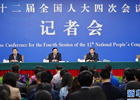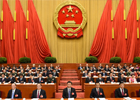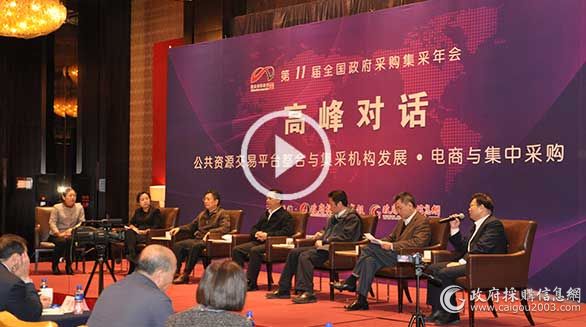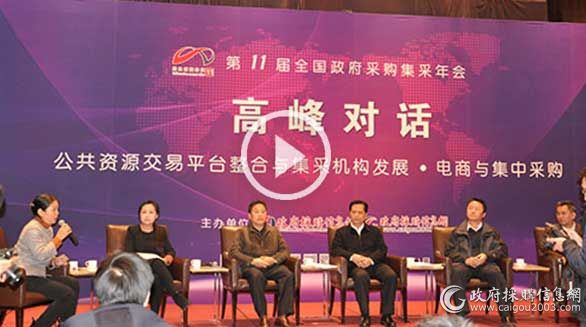全球基础设施论坛主席声明
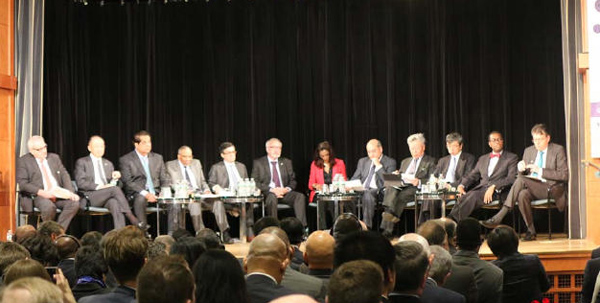
根据联合国第三次发展筹资会议《亚的斯亚贝巴行动议程》(第14段)的授权,由多边开发银行(Multilateral DevelopmentBanks)共同设立全球基础设施论坛(Global Infrastructure Forum),旨在帮助解决全球基础设施缺口问题,作为实现联合国可持续发展目标(Sustainable Development Goals)的重要措施。这将在现有多边合作机制的基础上,为各国和发展伙伴们提供一个新的合作平台,“促进已有的和新的基础设施行动倡议、多边和各国开发银行、联合国机构、国内机构、发展伙伴及私营部门等提高行动的一致性和合作性”(《亚的斯亚贝巴行动议程》第14段)。论坛将鼓励各方特别是发展中国家积极发出声音,并将识别和解决基础设施和能力建设缺口,尤其是最不发达国家、内陆发展中国家、小岛屿发展中国家、中等收入国家国内相关区域和非洲国家等的缺口。论坛将彰显广泛的投资和合作机会,将确保投资在环境、社会、经济等方面都是可持续、气候智能和气候适应的,并与《联合国气候变化框架公约》中的国家承诺保持一致。
论坛将通过鼓励多边开发银行积极联合履行基础设施投资承诺,支持G20、G-24、G-77和g7+等集团的基础设施相关议程。
我们作为多边开发银行和发展伙伴,基于自身职能定位、对公共和私营部门的合作号召力,以及对知识、建议、融资、商业和非商业风险化解等的配置和利用能力,承诺与各国和各类投资者合作,提供更易获取、质量更高、财力可承受的,以及在环境、社会、经济等方面可持续的基础设施服务。我们将采取双管齐下的办法来落实:
一是继续支持国家主导的行动,这些行动包括对可持续的、因地制宜和灵活适应的、包容的、优化的基础设施建设和稳健的基础设施框架进行规划、执行、监管和评价。此外,我们将继续支持政府、用户、私营部门、民间团体等各利益相关方参与到基础设施规划、国内国际融资、服务运营等环节中。
二是巩固和扩大现有的多边机制,使用包括风险消除和风险分担机制在内的全球和地区平台与工具,进一步促进知识转移、项目准备和实施支持。此类平台和工具已在多边开发银行的密切合作中取得稳步发展,例如全球基础设施基金(GIF)、全球基础设施中心(GIH)、国际基础设施支持系统(International Infrastructure Support System)、PPP知识实验室(PPP Knowledge Lab)、系列《基础设施报告》(Infrascope)、PPP认证(PPPCertification program),以及环境、社会和治理标准等。
为实现论坛目标,我们决心开展如下行动:
第一,增强基础设施数据和信息管理
多边开发银行和发展伙伴将致力于帮助客户国家实现:
在可行的情况下,更好地规划和优化基础设施,包括改善数据、单位成本和信息等;
获得更多信息支撑的公共和私营部门投资决策,其中,对于公共部门而言,可以是获得好的顾问支持;
在资产运营和服务提供方面增强责任制;
更大程度的信息披露和透明度;
用户和大众更大的话语权。
为此,多边开发银行和发展伙伴同意与各国合作,在可能的情况下,就以下方面改善数据采集系统和制定系统性报告:
多边开发银行对基础设施项目的贷款和咨询支持,以及衡量撬动私人投资的指标;
基础设施支出和投资(实际的和要求的)、资产质量、服务标准,以及信息披露和透明度;
为改善吸引基础设施投资增长的良好扶持环境而开展的评估;
私营部门参与提供基础设施服务,以及动员国内和国际投资者的长期融资。
第二,促进兼容、高效的方法
在认识到不同机构各有特色,以及各国的目标、需求、法律法规框架(包括与联合国可持续发展目标和《联合国气候变化框架公约巴黎协定》有关内容)不同,各个多边开发银行的优先事项和战略具有多样性的同时,通过以下措施,多边开发银行和发展伙伴能够针对瓶颈和局限采取有效解决办法,减少建设及实施可持续基础设施的交易成本:
利用政策支持促进能力发展,包括来自项目准备和咨询、技术援助以及能力建设方面的支持;
依照《联合国气候变化框架公约》国家自主贡献(NationallyDetermined Contributions)目标,推动基础设施的规划和发展;
在适当时机通过国际基础设施支持系统支持项目前期准备工作;
进一步发展风险管理原则和机制:
一是不同行业和市场各自的风险分配方法,以及拟定相应合同条文的方法;
二是不确定情况下的投资规划,以建设更多因地制宜和灵活适应的资产,尤其要考虑气候变化和灾害风险。
进一步开发工具以评估:
政府投资项目和PPP项目的财政影响对比;
政府投资项目和PPP项目的实施风险;
提高基础设施合同和项目透明度的方法。
加强经济调节手段的能力,在基础设施项目生命周期内确保效率增益公平分摊给服务提供者和使用者;
通过多边金融机构环境和社会标准工作组(MFI-WGESS)等的相关工作,继续发展环境、社会和治理标准;
继续协调气候资金方法、工具以及联合提高资源有效性的途径,包括动员针对低碳和环境适应性基础设施服务的新的资本投资来源。
第三,强化项目准备
多边开发银行和发展伙伴同意,基础设施项目中的项目,无论是政府出资、私营或者公私合营的,都应是可持续的。多边开发银行和发展伙伴将继续支持现有的和已计划落实的项目准备基金和相关数据库,以支持各国的如下行动:(1)优先准备和实施具备融资可行性的基础设施项目(包括区域性项目和跨境项目);(2)更妥善地协商复杂的法律合同;(3)更好地管理项目。
第四,促进基础设施融资
多边开发银行和发展伙伴将在以下方面探索采取具体行动:
在基础设施领域实现更高水平的私营部门参与,充分改善结果,包括减少建设到运营的时间、长期的资产管理、整体的服务交付管理;
推进已有的和新的多边开发银行合作,尤其是在互利互惠基础上进行联合融资机会;
与优惠的气候资金提供者、捐赠者、私人基金和机构投资者等创新合作方式;
在多边开发银行资产和债券二级市场的支持下,发展基础设施资产和债券二级市场,允许项目参与方通过在二级市场上回笼资金,投入新的PPP项目,创造更能吸引机构投资者的资产与风险长期组合;
识别安排可行性缺口补贴的机会,帮助PPP项目满足可融资性标准和用户可承受标准;
利用风险分担工具,进一步提高多边开发银行的融资能力,如政治风险保险及再保险,部分风险和信用担保,发行绿色债券,以及吸引投资者的其他类似工具;
开发新工具,充分利用多边开发银行资产,引入新的私营部门资本,包括保险市场和机构投资者;
进一步强化客户国的国内金融系统,为可持续基础设施建设的融资提供支持。
全球基础设施论坛的未来会议和报告
全球基础设施论坛计划每年举办一次,以评估相关工作进展。多边开发银行将轮流负责主办论坛。将继续以包容的方式开展论坛筹备工作,并通过联合国经济与社会发展部与联合国系统紧密合作。将通过融资发展高层论坛向联合国成员国报告全球基础设施论坛的成果。
(译者按:因时间仓促,译文不足之处敬请批评指正。)
附:英文原文
Chairman’s Statement
GlobalInfrastructure Forum, April 16, 2016
Co-hosted by MDBs (AfDB, AIIB, ADB, EBRD, EIB, IADB, IsDB, NDB and the WBG)
In partnership with UN Agencies and Development Partners
Mandated by the Addis Ababa ActionAgenda (para 14), as an outcome of the Third International Conference onFinancing for Development, the Global Infrastructure Forum is being establishedby the MDBs to help bridge the infrastructure gap, as key for achieving theSustainable Development Goals (SDGs). This will provide a forum for countriesand development partners to work together by building on existing multilateralcollaboration mechanisms, and to “improve alignment and coordination amongestablished and new infrastructure initiatives, multilateral and nationaldevelopment banks, UN agencies, national institutions, development partners,and the private sector.” (AAAA Para 14) It will encourage a greater range ofvoices to be heard, particularly from developing countries, and identify andaddress infrastructure and capacity gaps in particular in LDCs, LLDCs, SIDS,sub-national entities in MICs, and African countries. It will highlightopportunities for investment and cooperation, and work to ensure thatinvestments are environmentally, socially, and economically sustainable,climate-smart and climate-resilient, and in line with partner countries’national commitments under the United Nations Framework Convention on ClimateChange.
The Forum will also support theinfrastructure-related agendas of the G20, G-24, G-77 and g7+ by encouragingMDBs to take joint actions to demonstrate their commitment to infrastructureinvestment.
We, as MDBs and development partners,by nature of our roles and our convening power to partner with both the publicand private sectors, and our ability to deploy a suite of knowledge, advice,financing, and commercial and non-commercial risk mitigation, are committed toworking with countries and investors to support the provision of greater accessto, and better quality of, affordable infrastructure services which areenvironmentally, socially, and economically sustainable. We will do thisthrough a two-pronged approach.
i) We will continue to supportcountry-led approaches to planning, executing, supervising, and evaluatingsustainable, resilient, inclusive, and well-prioritized infrastructure programsand robust infrastructure frameworks. In addition, we will continue to supportthe involvement of all stakeholders in planning, financing through domesticresource mobilization as well as national/international financing, andoperating infrastructure services, including governments, consumers, theprivate sector and civil society; and
ii) We will consolidate and scale upwhere possible existing multilateral mechanisms to promote greater knowledgetransfer, project preparation, and implementation support in the form of globaland regional platforms and tools, including de-risking and risk allocation mechanisms,that have already been developed in close cooperation by MDBs, such as theGlobal Infrastructure Facility, the Global Infrastructure Hub, theInternational Infrastructure Support System, the PPP Knowledge Lab, Infrascope,the PPP Certification program, and environmental, social and governancestandards.
To achieve the objectives of the Forum,we resolve the following.
Improving data and information on infrastructure
MDBs and development partners willendeavor to help client countries to achieve:
better planning and prioritization ofinfrastructure, including improved provision of data, unit costs, andinformation on infrastructure, where feasible;
more informed decisions by the publicand private sectors around investment, which in the case of the public sectormay imply access to support from good advisors;
improved accountability in assetmaintenance and service delivery;
greater levels of disclosure andtransparency; and
a greater voice for users and thepublic at large.
To help achieve this, the MDBs anddevelopment partners agree to work together with client countries to improvedata acquisition and develop systematic reporting where possible, on:
MDB lending and advisory support toinfrastructure, as well as metrics on catalyzation of private investment;
infrastructure spending and investment(both actual and required), asset quality, service standards, and fosteringdisclosure and transparency;
assessments that promote a soundenabling environment to attract increased investment for infrastructure; and
private participation in the deliveryof infrastructure services and the mobilization of long-term finance frominvestors, both domestic and international.
Promoting compatible, efficient approaches
While recognizing differinginstitutional characteristics, country objectives, needs, legal/regulatoryframeworks, including those related to the SDGs and UNFCCC Paris Agreement, andthe diversity of priorities and strategies of the mandates of the MDBs, thelatter and development partners can reduce transaction costs of building andimplementing sustainable infrastructure by continuing the promotion ofefficient approaches to key bottlenecks or constraints, by:
Promoting capacity development bypolicy support, and via project preparation and advisory facilities, technicalassistance, and capacity building support.
Supporting the planning and developmentof infrastructure in the context of Nationally Determined Contributions to theUNFCCC.
Supporting, when appropriate, earlystage project preparation through the International Infrastructure SupportSystem.
Further developing risk managementprinciples and mechanisms for:
approachesto risk allocations in different sectors and markets and associated contractualclauses; and
planninginvestment under uncertainty, to build more resilient assets, notably takinginto account climate change and disaster risks.
Further developing tools for assessing:
fiscalimplications of public investment versus public-private partnerships (PPPs);
risksof implementation of projects as PPPs or as a public option; and
approachesfor improving transparency on infrastructure contracts and projects.
Strengthening the capacity of economicregulators to ensure that efficiency gains obtained throughout the lifecycle ofinfrastructure projects are shared fairly between service providers and users.
Continuing our work on developingenvironmental, social, and governance standards, including through the work ofthe Multilateral Financial Institutions working group on environmental andsocial standards (MFI-WGESS).
Continuing our coordination on climatefinance methods, tools, and approaches for jointly improving the effectivenessof these resources, including for mobilizing new sources of capital forinvestment in low carbon and climate resilient infrastructure services.
Strengthening project preparation
MDBs and development partners agree onthe need to develop sustainable infrastructure project pipelines regardless ofwhether they are funded publicly, privately, or in combination. MDBs anddevelopment partners will continue to support existing and planned projectpreparation facilities and related databases to support countries to prioritizeand prepare bankable pipelines of infrastructure projects (including regionaland cross-border projects), to better negotiate complex legal contracts, and tobetter manage projects.
Promoting financing for infrastructure
The MDBs and developmentpartners will explore taking specific actions to:
Achieve higher levels of private sectorparticipation (PSP) in infrastructure, to leverage improved results regardingreduced time from construction to operation, asset management over thelong-term, and overall management delivery;
Promote cooperation between new andexisting MDBs, with a particular focus on opening up co-financing opportunitieson mutually beneficial terms;
Pursue new innovative approaches tocollaboration, including with providers of concessional sources of climatefinance, donors, private foundations, and institutional investors;
Foster the secondary market forinfrastructure equity and debt, with MDBs supporting the development ofsecondary markets for equity and debt, to allow project developers to recycletheir scarce capital in the secondary market into new PPPs coming to tender,and to create long term assets with a risk profile that is more attractive toinstitutional investors;
Identify opportunities to supportviability gap funding arrangements to help PPP projects meet bankability and affordabilitycriteria;
Further increase MDBs’ financialcapacity through the use of risk sharing instruments such as political riskinsurance and reinsurance, partial risk and credit guarantees, issuance ofgreen bonds, and other such instruments to crowd in other investors;
Develop new tools to leverage MDBbalance sheets and bring in new private sector capital, including from theinsurance market and institutional investors; and
Further strengthen domestic financialsystems in client countries to support sustainable infrastructure financing.
Future meetings of the Global Infrastructure Forumand Reporting
We expect that the GlobalInfrastructure Forum will be held annually, to review progress. Theresponsibility for hosting the Forum will rotate among the MDBs. Preparationsfor the Forum will continue to be carried out in an inclusive manner, incooperation with the UN system through UN-DESA. The outcomes of the GlobalInfrastructure Forum will be reported to UN Member States via the Financing forDevelopment Forum.
来源:财政部PPP中心
上一篇:论坛主题:更多更好地投资基础设施
- 论坛主题:更多更好地投资基础设施
- 首届全球基础设施论坛16日在华盛顿举行
- 特许经营和PPP异同分析
- 大数据下水务市场化PPP的发展成绩
- 专家建议将特许经营与PPP“合二为一”
- 福建在深圳推介1700亿元PPP项目
- 泉州市住房和城乡建设局晋江下游生态整治工程(一期)PPP项目中标公告
- 国际招标有限公司关于江西省于都工业园区部分基础设施PPP项目(项目编号:0658-1501SZTC">深圳市国际招标有限公司关于江西省于都工业园区部分基础设施PPP项目(项目编号:0658-1501SZTC
- 淄博市公安局看守所基础设施维修改造项目监区修缮部分施工中标公告
- 固镇县2016年度新增耕地项目测量、规划设计及预算编制 皖C-2016-GZ-CG-035
